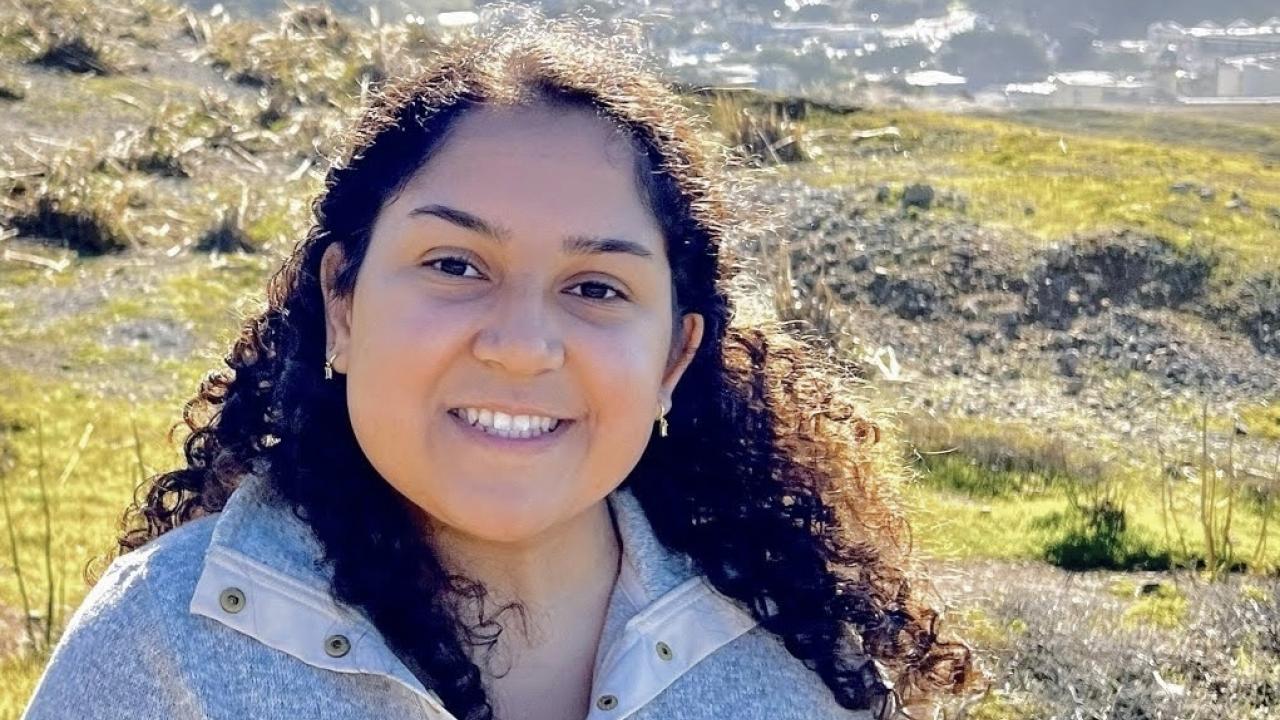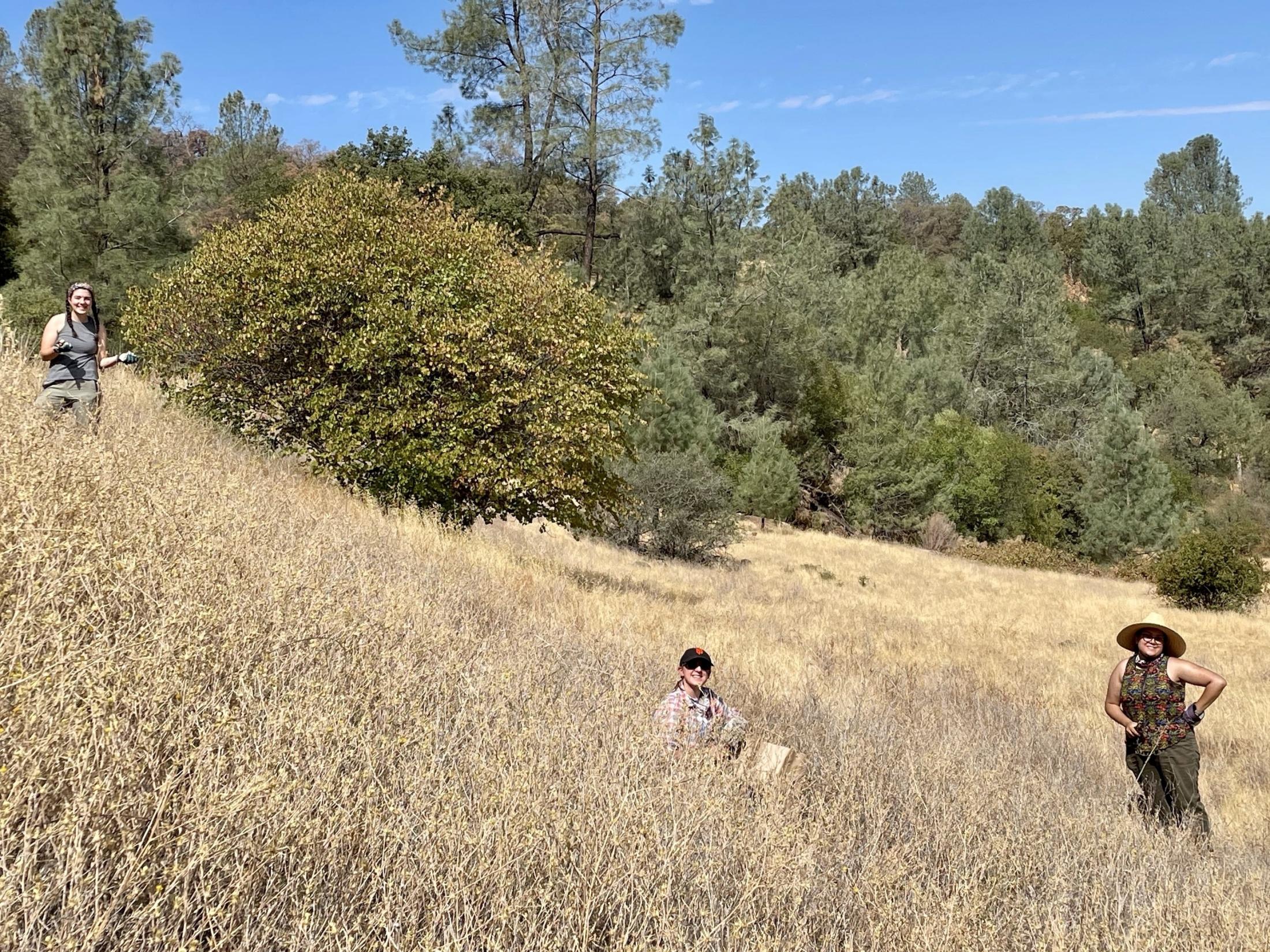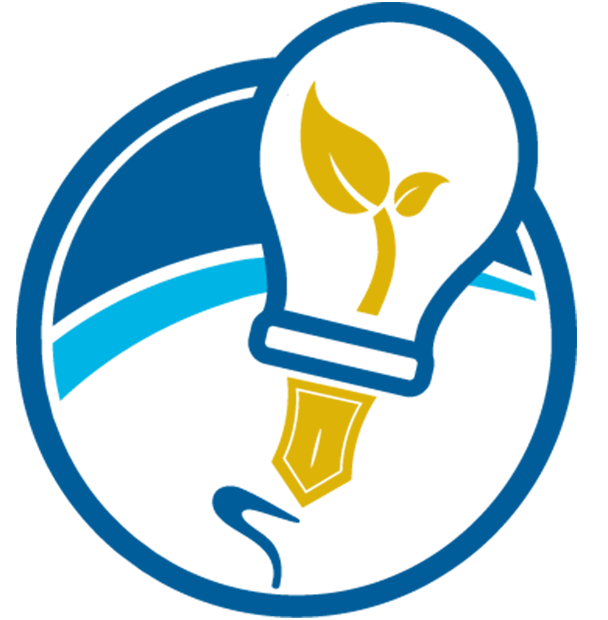
Lauren Ward - Evolution, Ecology and Biodiversity
Among the coastal dunes at the UC Davis Bodega Marine Laboratory or the fields of wildflowers at McLaughlin Natural Reserve, you might find Lauren Ward, a senior undergraduate student with the Gremer lab collecting plants and soil for research where her passion resides in plant-microbe interactions and finding answers to bigger questions in ecology.
Ward is an Evolution, Ecology and Biodiversity student with a minor in Professional Writing. She began working in the Gremer lab with Dr. Marina LaForgia in the Summer of 2021. Ward had just transferred from American River Community College to UC Davis when she first participated in her research intern position.
Ward expressed how apprehensive she was to start participating in research.
“The hardest part is getting your foot in the door and taking that first step,” said Ward. “But once you take it, it's so much easier to do the rest.
As an intern, she spent most of her time collecting seeds and recording their traits. She remembers the Yellow star thistle that was difficult to open because of its prickly spines and her lab had to test different ways to open this plant without hurting the seeds or their fingers. She remembers trying to use a mallet and tweezers to open this plant but her lab discovered that putting it in a coffee grinder broke down the spikes without harming the seeds. Ward’s experience with star-thistle was both a fun memory along with a learning lesson in the lab.
“I realized that in order to conduct strong research—you have to be creative,” says Ward.
This lesson allowed her to gain the valuable skill of thinking critically. Ward discussed how important she thought this skill was in research because it allows her to always think two steps ahead when she encounters a problem.
“The ability to think critically is one of the best skills an individual can acquire from any experience they’re participating in, and in research, it’s a necessity,” said Ward.
What is research in your field like?
As an ecological researcher, Ward is interested in plants and how they interact with the world around them. This means that she spends a lot of time outside conducting fieldwork, which is one of her favorite things about the field. “You do a lot of lab work, a lot of fieldwork, you would have days where you go out in the field collecting seeds in really hot weather.” said Ward “I couldn't believe people were being paid to work in natural spaces." Fieldwork allowed Ward to see the world in a different light because she was in the natural spaces that she had only read about in textbooks. “In ecology, you spend a lot of time thinking about patterns in nature and when you’re in these natural spaces you can see how structure and function operate under those patterns,” said Ward.
What's one of your takeaways from your experience?
Ward’s fieldwork experience showed her that there are still so many unanswered questions in the world of research. “There are so many things we do not have answers for and that's why research is so necessary, even when research feels very specific, it all fits within a bigger picture,” said Ward. “Everything has its place within everything else.”
Future plans?
Ward will be graduating in June '23 and continuing her academic and research journey at Stanford University. She believes her experiences as a student at UC Davis have prepared her well for this journey as she looks to study plant-microbe interactions and how they shape plant community structure and function in the coming years.
“I try to tell students all the time that what matters most in applying to graduate school is going to be your passion,” said Ward. “Because it's a long journey and your passion is what will carry you through your experiences in research.”

